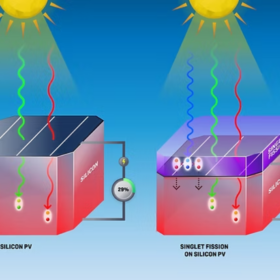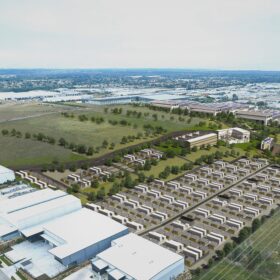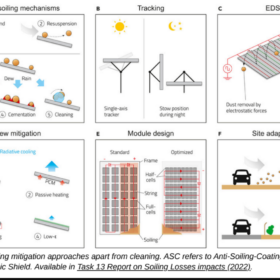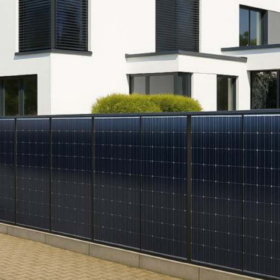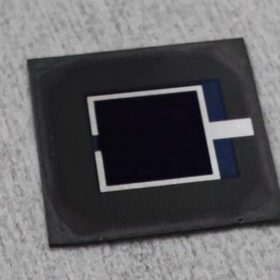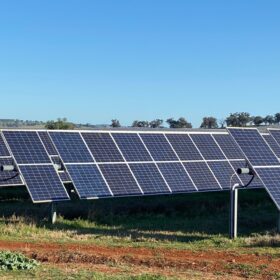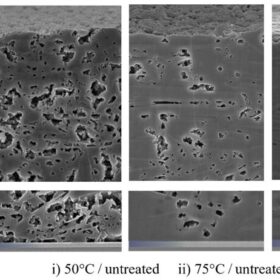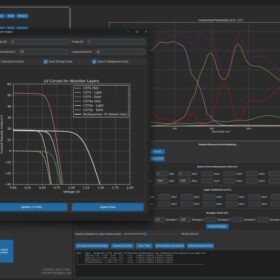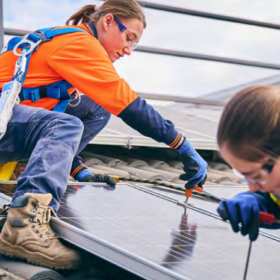Singlet fission research breakthrough unlocks high solar cell efficiency
University of New South Wales researchers have filed patent protection and are working to scale production of a new class of photostable organic molecules proven to boost silicon solar cell efficiency, reduce heat and extend panel lifetimes using singlet fission.
Supernode 8-hour battery one step closer as first stage starts up
Australian green infrastructure investor and developer Quinbrook Infrastructure Partners’ Supernode battery Stage 1 substation has been successfully connected to Queensland’s transmission network.
IEA-PVPS warns soiling costs solar industry billions per year
The International Energy Agency’s Photovoltaic Power Systems Programme says dust, pollution, and debris on solar panels reduce output by 4% to 7% worldwide, costing the industry billions of dollars annually and making tailored mitigation increasingly urgent.
Clickcon launches solar PV fence for residential, commercial sites
Germany-headquartered mounting system specialist Clickcon has developed a new vertical ground-mounted system compatible with commercially available framed PV modules.
Risen presents 475 W TOPCon solar panel with 23.8% efficiency
Chinese solar module maker Risen Energy has introduced a 475 W bifacial solar module with a power conversion efficiency of 23.8% to the Australian market, targeting the rooftop market.
KAUST achieves 28.7% efficiency in perovskite-perovskite-silicon tandem solar cell
An international team of researchers led by King Abdullah University of Science and Technology has fabricated a triple junction perovskite-perovskite-silicon tandem solar cell that achieved a world record efficiency for this cell architecture. The device incorporates stabilised perovskites that ensure improved performance and stability.
New algorithms boost dual-axis solar tracker performance
Researchers in Australia and India have developed two solar tracker optimisation techniques that can purportedly increase power generation by up to 54.36% when combined. One uses a light sensor and the other relies on data from GPS and a real-time clock.
Goodbye petrostates, hello ‘electrostates’: how the clean energy shift is reshaping the world order
For more than a century, global geopolitics has revolved around oil and gas. Countries with big fossil fuel reserves, such as Saudi Arabia and Russia, have amassed significant wealth and foreign influence, helping shape the world order.
Perovskite solar cells with laminated carbon electrodes reach 20.4% efficiency
Scientists in Germany report a method to boost performance of perovskite solar cells made with laminated carbon electrodes that are compatible with typical hole transport layers.
New open-access simulation software for solar cell modelling
Developed by a professor at the Polytechnic University of Catalonia, the Soley software is claimed to enable precise optoelectronic modeling of photovoltaic devices and accurately reproduce the behavior of photodiodes under illumination.
